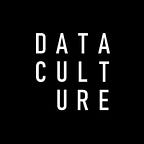The Future of Data Through the Eyes of Gen-Z
By Mikaela Ergas-Lenett, Operations & Education Manager @ Data Culture
Nothing is more rewarding or inspiring than bringing new young minds into the data science field. We sat down with five of the brightest 14–18 year old future data science leaders to learn about their aspirations for the future.
Mikaela: What were your entry points into data?
Katherine: My interest in data actually started through Instagram. I started seeing different social activist data visualizations pop-up on my feed from people like @monachalbi and @giorgialupi. It made me really want to know more about the field of data in general.
Anum: I’ve always been interested in technology, but I wanted to learn how things work and understand the kind of mindset and logic you need to make data-driven decisions. That curiosity led me to the world of data science.
Allie: I first heard about data science in a computer science class at my high school. I originally thought it was very statistics-oriented, very math-y, which turned me off a bit. However, I soon found out that it’s really a combination of math, coding, design and lots more. From then on, I was hooked.
Mikaela: What were some of your first impressions of data?
Charis: I think people tend to make this field sound more daunting than it actually is. At my high school, there’s only one data science class called Data Structures and it really focused solely on calculus and math. Since this was my first and only introduction to STEM, it kind of turned me off because it’s all I knew. After doing my own research outside of class, I learned there’s so much more to data and data science in particular. Once I found elements I could relate to, the technical part became easier and less scary.
Gabi: Agreed! People always use buzzwords like “big data” or “data mining” but can never really explain to me what those terms actually mean. It can be intimidating when you’re just learning and starting out. I think what helped me was getting a more comprehensive understanding of data. When I was able to connect technical concepts to real life situations it made it alot easier to grasp and was more interesting too!
Katherine: A lot of people think data science is only about coding, but they don’t take into account the ethics of how we create and share data. Questions like how is the data being presented? Who has access to it? That kind of stuff is rarely taught in classes but I think it is equally important.
M: It seems like there are some issues with barriers to entry. How do you think the field of data science will become more inclusive in the future? And what do you think the future of STEM will look like?
Anum: I feel like as things become more data-focused, people’s general knowledge of data will improve, which I hope will lead to positive social change. Now the field has transformed and we can use statistics in combination with storytelling and design to spread ideas and really inspire action. The more knowledge we make accessible through data, the more people can relate to each other and understand what areas of our world need our attention and support, which I think is really exciting.
Mikaela: What advice would you give to your younger self or generation Alpha?
Katherine: I would say, if you’re not good at math, ignore that part, because if you’ve seen my math grades, it’s not really important. I think what’s really important is having a sense of passion and curiosity!
Anum: Agreed! You can learn about data all around you, you just have to look around. Something that’s helped me is to practice looking at the end products in my day to day life. I try to figure out how it came to be and what data needed to be collected in order for it to be created.
Gabi: I think if I could say something to myself 5 years ago, I would literally just scream and try to convince myself in any way to become involved in data science. I think that so many things that are starting out right now and that are shaping the world are based on data science. So, for me, it’s the same reason you learn basic biology or physics in school, because it’s part of the inner structure of the world. So it’s not really an option. It’s basically like asking yourself if you want to be able to “participate” in the future.
Mikaela: where do you see yourselves 5 years from now?
Anum: In 5 years, I will be 21 years old and will probably be majoring in either computer science or data science. I really want to be a voice in the field for whatever I end up doing. I want to be somebody that seniors or juniors in high school be like “if she’s able to do that, I can do that too.” That’s really my goal, and 5 years isn’t that far away.
Gabi: I’ve always been very interested in the intersection between law and data science. How laws are created and enforced to try to keep up with new innovation, and how the combination of technological advancement and our legal structures really dictate how we live. So hopefully I’ll be exploring that relationship and somehow contributing in one of those fields, or maybe even both. I have no clue where that will lead me, but I’m excited to figure it out!
Special thank you to Allie, Anum, Charis, Gabi and Katherine!
Interested in learning more about how to scale data at your company? Reach out to Leah and Gabi at Data Culture.
